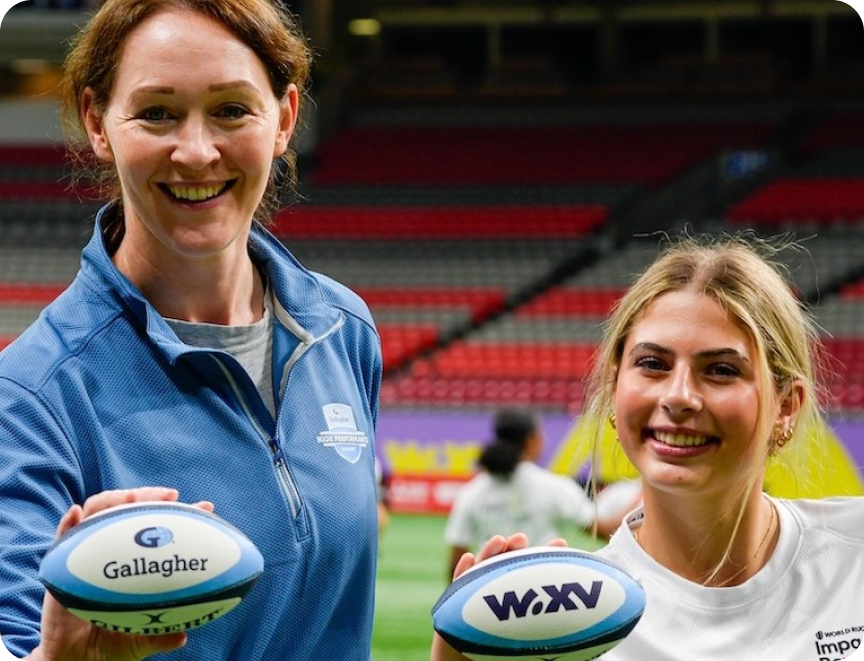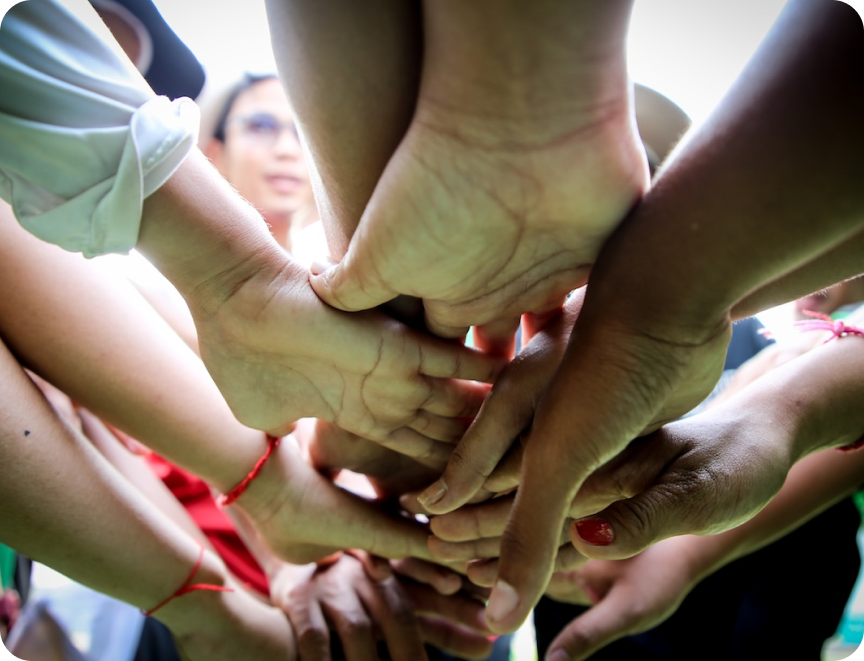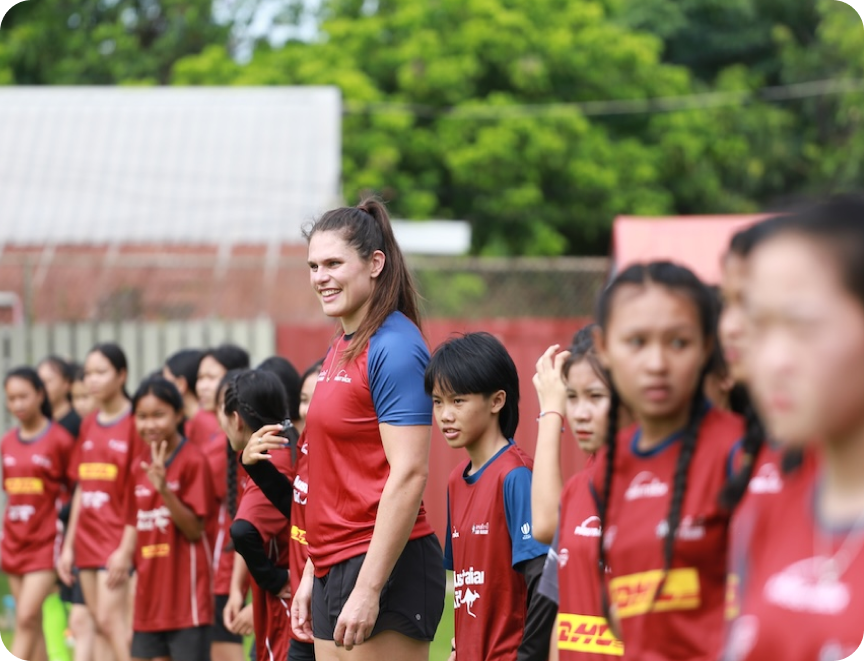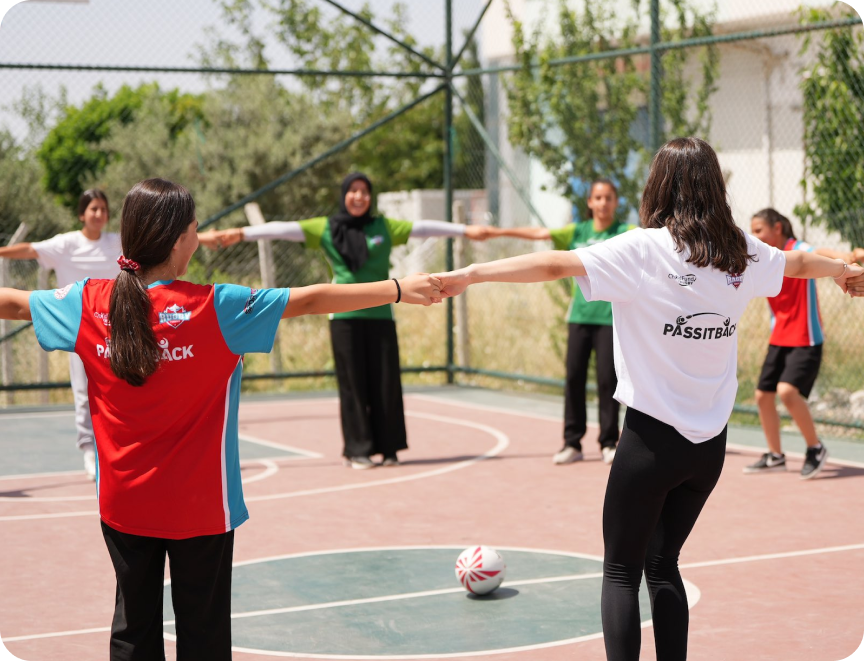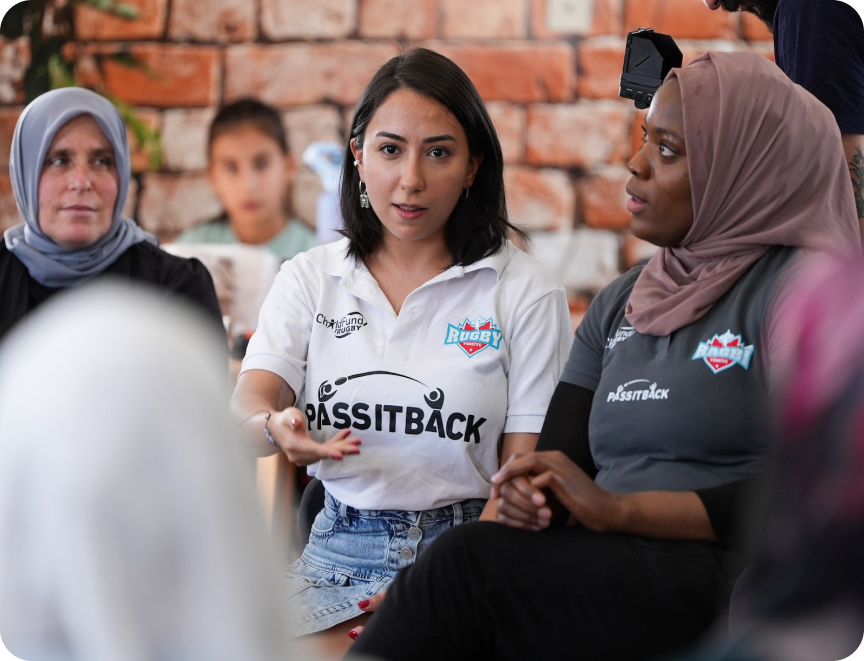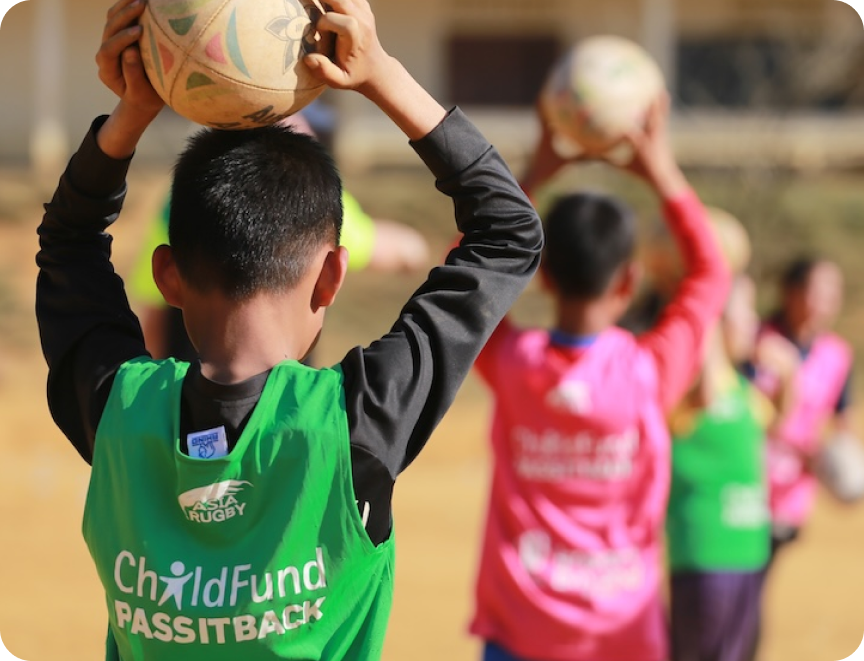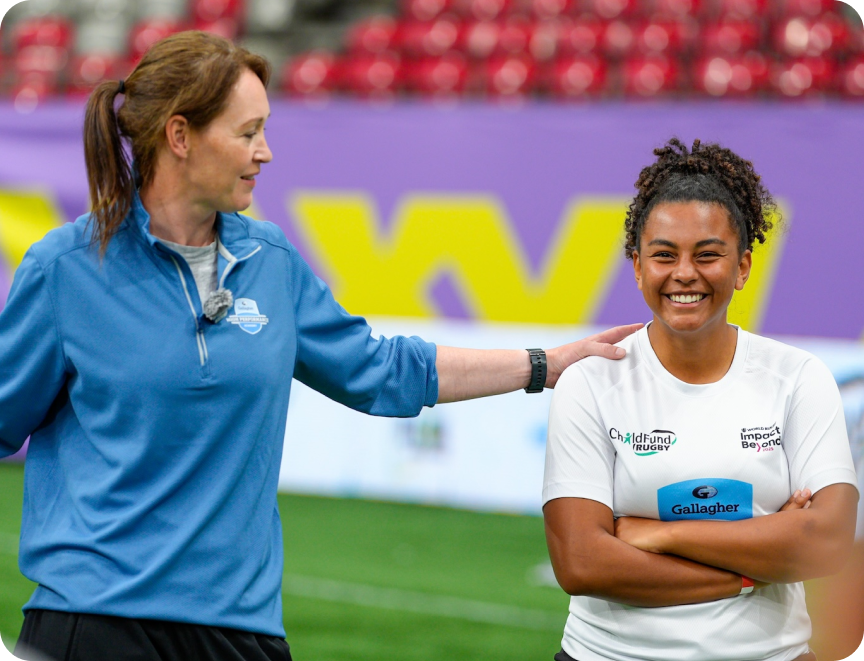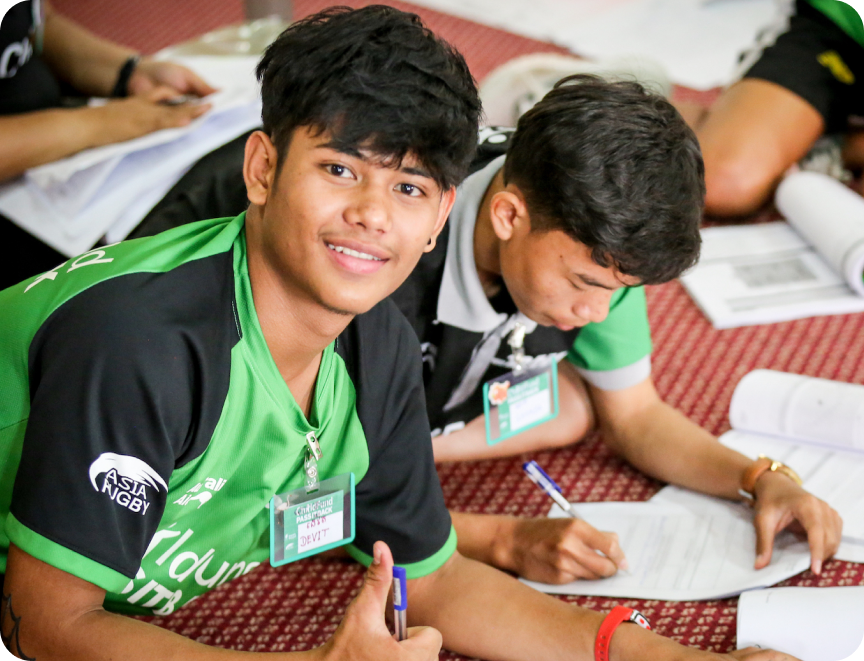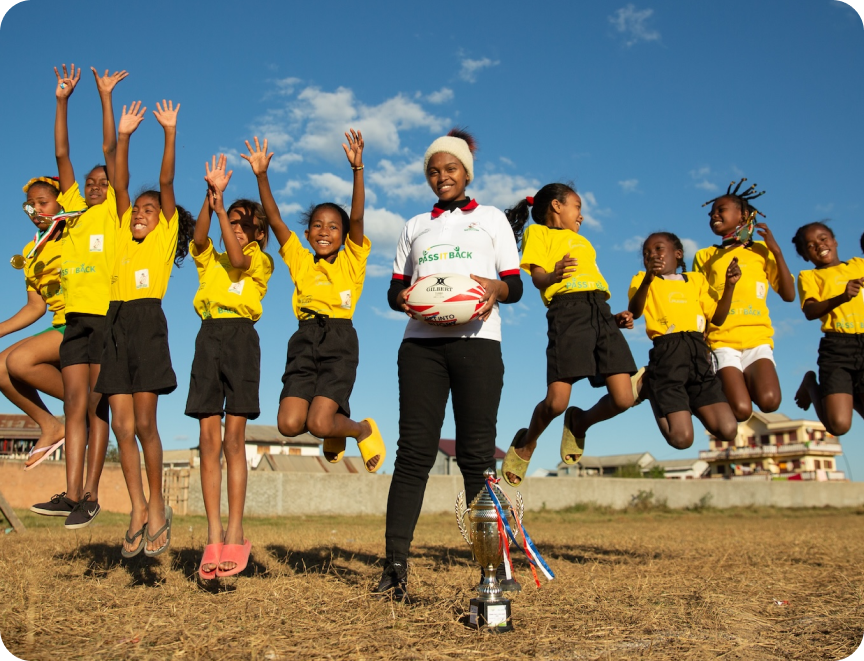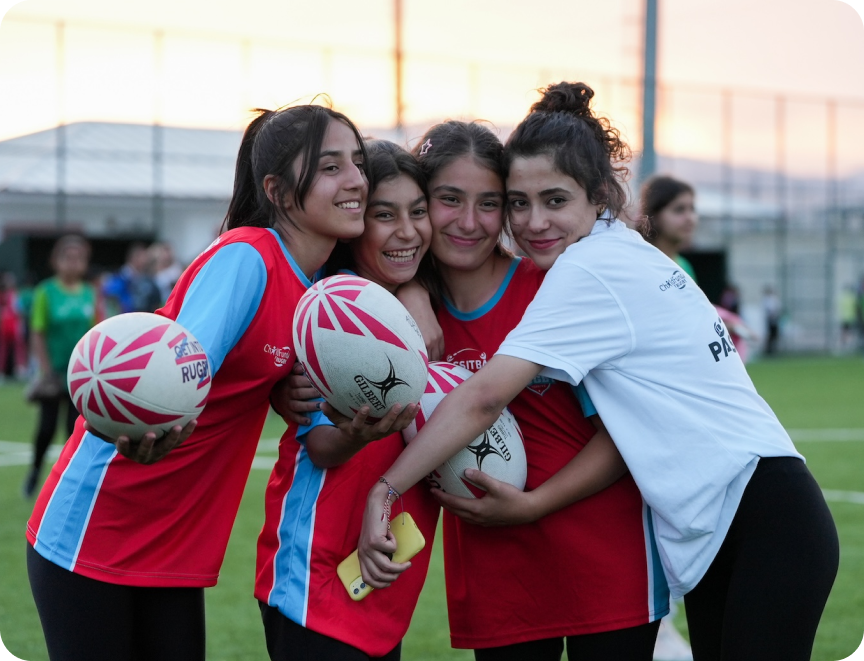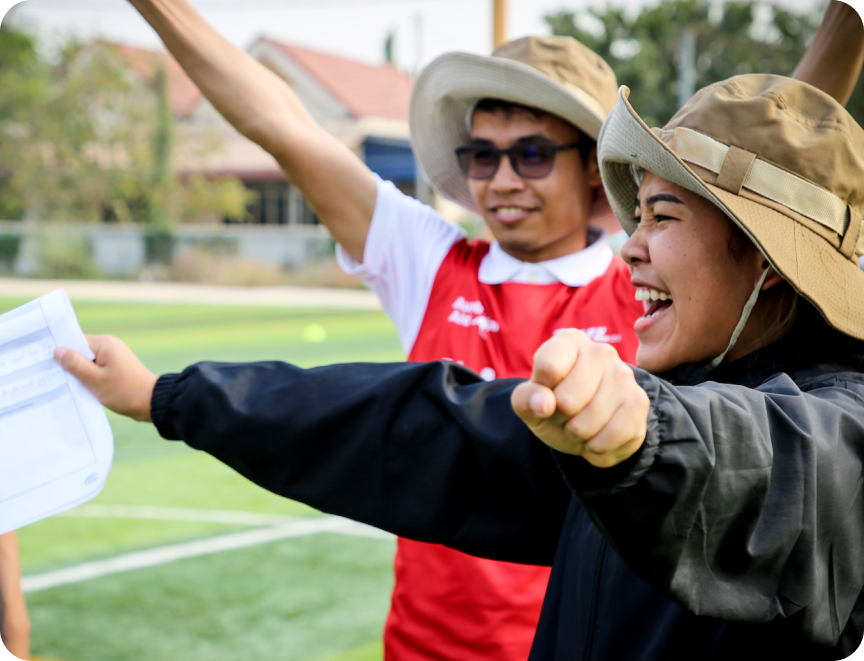Mo and Hien have been ChildFund Pass It Back coaches for the Ngo Luong Commune for over seven months, and travel over 80km in a day to reach their team.
Last season, Mo and Hien not only coached two teams in their own community, but spent their weekends travelling over 80kms on unpaved roads to provide support to another three female tag rugby teams.
A bumpy road ahead
In the midst of a harsh and cold winter, Mo and Hien would head off at ten in the morning, only returning after eight o’clock at night. Despite bursting their motorcycle tyres eight times due to the rocky terrain, Mo and Hien kept up their grueling schedule and demonstrated every week their serious commitment to supporting young people in their province.
Hien said: “There was this desolated six-kilometre stretch that crosses through the forest that worried us most. What if our motorbikes broke down? Who could we call for help? My dad came to our aid three times. But we gradually grew used to it, and the road felt easier, faster, and less scary.”
Since they made the decision to coach these three teams, Hien and Mo have been making a big effort to make sure more children get the opportunities they deserve. Mo says: “I think it would be unfair for our teams if we stopped coaching. They took the time to come and sign up, but if we stopped they wouldn’t get the chance to learn.
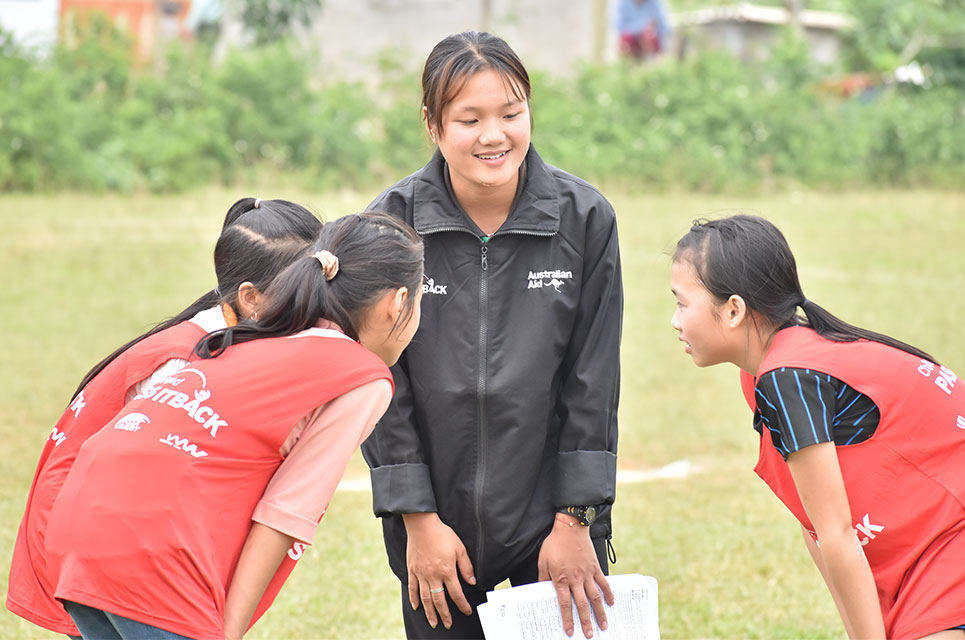
Hien (pictured) can travel up to 80km a day to provide coaching support to ChildFund Pass It Back rugby teams in rural Vietnam.
“They are eager to learn, and they have become quite attached to us. I have never felt disheartened but I recognise that the challenges of getting players interested and showing up are a coach’s responsibility, so I try my best to overcome them.”
A learning experience for everyone
And it’s not only the players who are learning something new. After finishing the Understanding Gender Module, Mo says: “I was so touched by the team when they gave us bracelets that they made themselves. A small gift, but we were both so happy as it showed how much they care for us.
“There were cold days, and there were rainy days, and some players had to walk 3km from their home to the pitch, yet they showed up for sessions. Their eagerness to learn motivated us.”
Hien adds: “When I started coaching, I started to learn more about gender, and I would share my opinions about this topic with my players and listen to their opinions in return. By doing this, I was able to learn other positive perspectives about gender and adjust my own negative ideas and attitudes.
She has even managed to change the gender expectations of the people closest to her. Hien says: “My father used to dislike girls with short or coloured hair. When I started coaching, players often came by my house and discussed session content with me, and we talked about what girls should or shouldn’t do. My dad would listen.
“About a month after I started coaching, I decided to cut my hair to shoulder length and colour it. When I came home, my father didn’t comment but instead smiled. Another month went by and he told me to take my mother out so that she could get a haircut in the style that she wanted.”

Coach Mo says: “I now know that everyone has the same rights, regardless of social class, religion, or social status, and everyone has the right to voice their thoughts and opinions, and to be respected and protected.
Building a better future for young women and girls
Hien has noticed changes in her team too: “I have seen that many players would think that a woman should spend their time raising children and taking care of the family, whereas a man’s sole responsibility is to go out and earn money.
“After the sessions, I could see that their views had changed. They now believe that both parents should share the housework, earn money, and manage the household expenses together.”
Mo adds: “I now know that everyone has the same rights, regardless of social class, religion, or social status, and everyone has the right to voice their thoughts and opinions, and to be respected and protected.
“Most of our players come from farming households who don’t have access to resources. Because of their background, our players need to work much harder to be successful, and I hope our sessions will equip them with the skills necessary to help them overcome challenges in life, to aim higher, and to seize opportunities and build a better future for themselves.”


